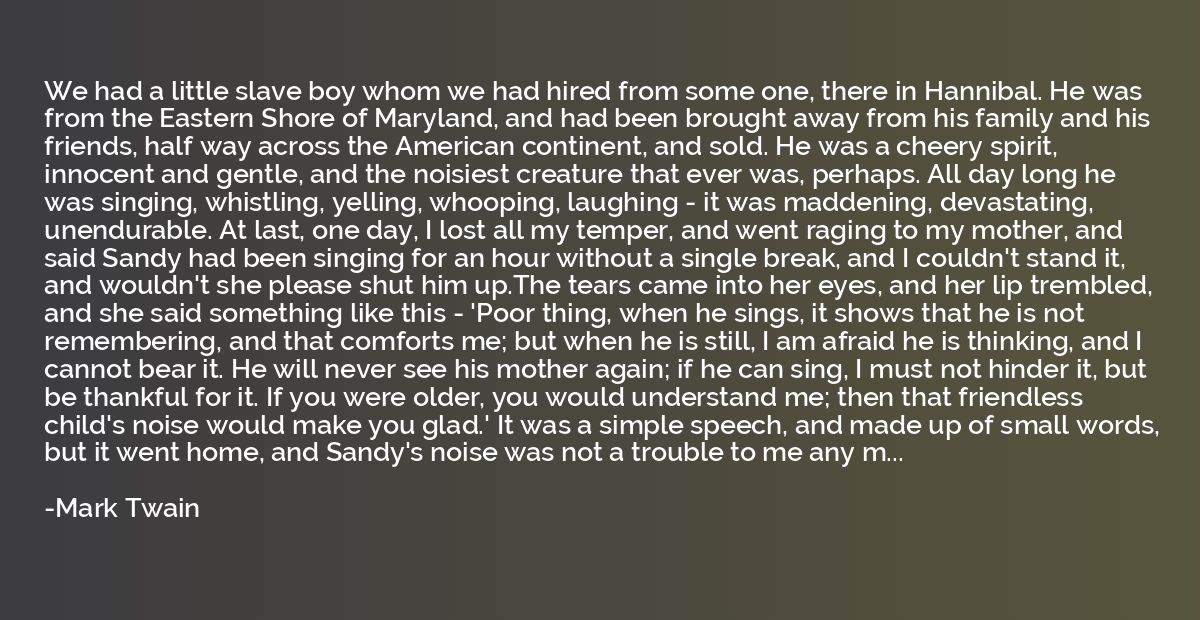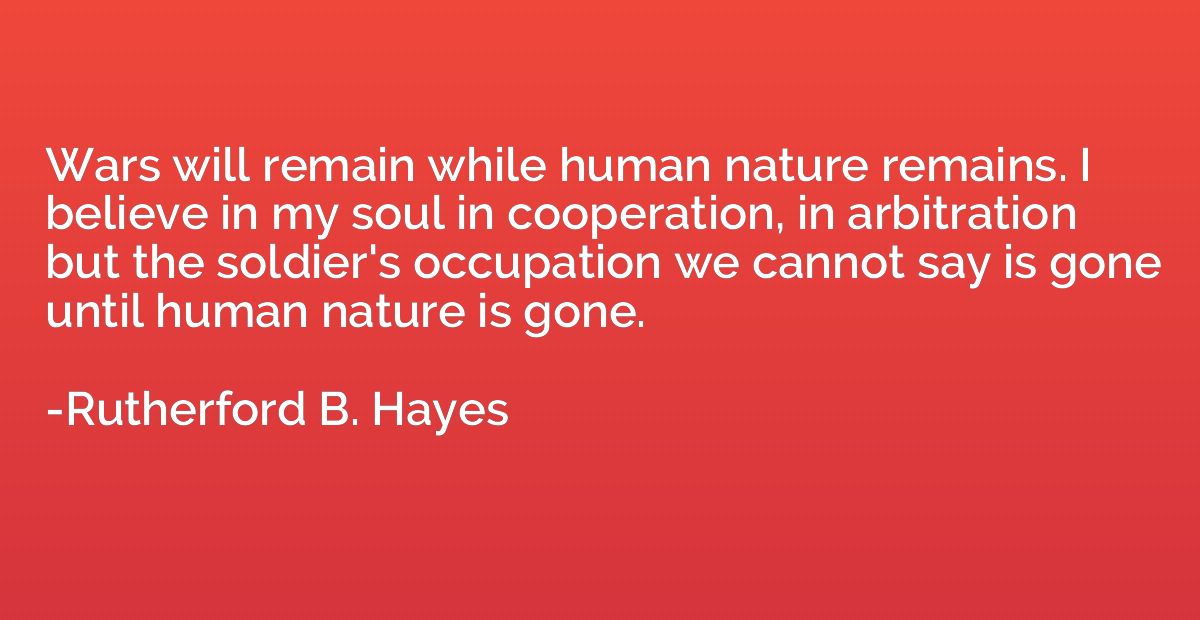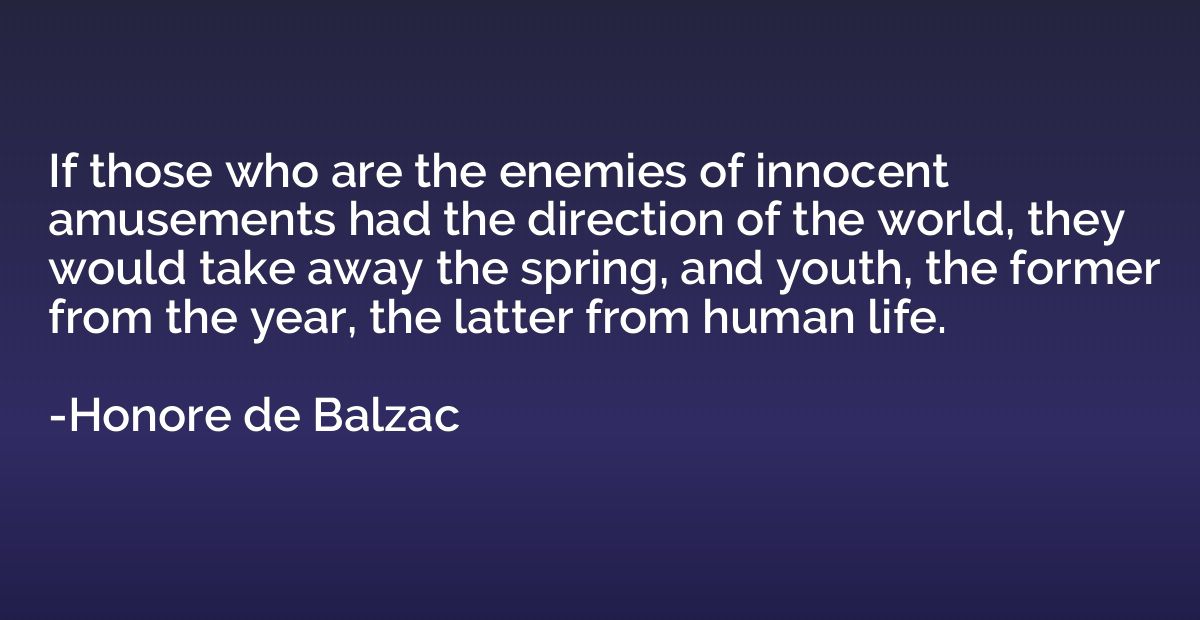Quote by Mark Twain
We had a little slave boy whom we had hired from some one, there in Hannibal. He was from the Eastern Shore of Maryland, and had been brought away from his family and his friends, half way across the American continent, and sold. He was a cheery spirit, innocent and gentle, and the noisiest creature that ever was, perhaps. All day long he was singing, whistling, yelling, whooping, laughing - it was maddening, devastating, unendurable. At last, one day, I lost all my temper, and went raging to my mother, and said Sandy had been singing for an hour without a single break, and I couldn't stand it, and wouldn't she please shut him up.The tears came into her eyes, and her lip trembled, and she said something like this - 'Poor thing, when he sings, it shows that he is not remembering, and that comforts me; but when he is still, I am afraid he is thinking, and I cannot bear it. He will never see his mother again; if he can sing, I must not hinder it, but be thankful for it. If you were older, you would understand me; then that friendless child's noise would make you glad.' It was a simple speech, and made up of small words, but it went home, and Sandy's noise was not a trouble to me any more.

Summary
This quote highlights a conversation between the speaker, a young child, and their mother regarding a slave boy named Sandy. The child expresses frustration with Sandy's constant singing, finding it maddening and unendurable. However, the mother offers a different perspective, suggesting that Sandy's singing is a way for him to momentarily forget his hardships and find comfort. She implies that his silence, on the other hand, may indicate that he is overwhelmed with thoughts of his lost family and painful past. The mother's empathetic view prompts the child to change their perception of Sandy's behavior and appreciate it as a source of solace for him.
Topics
Slavery
By Mark Twain














